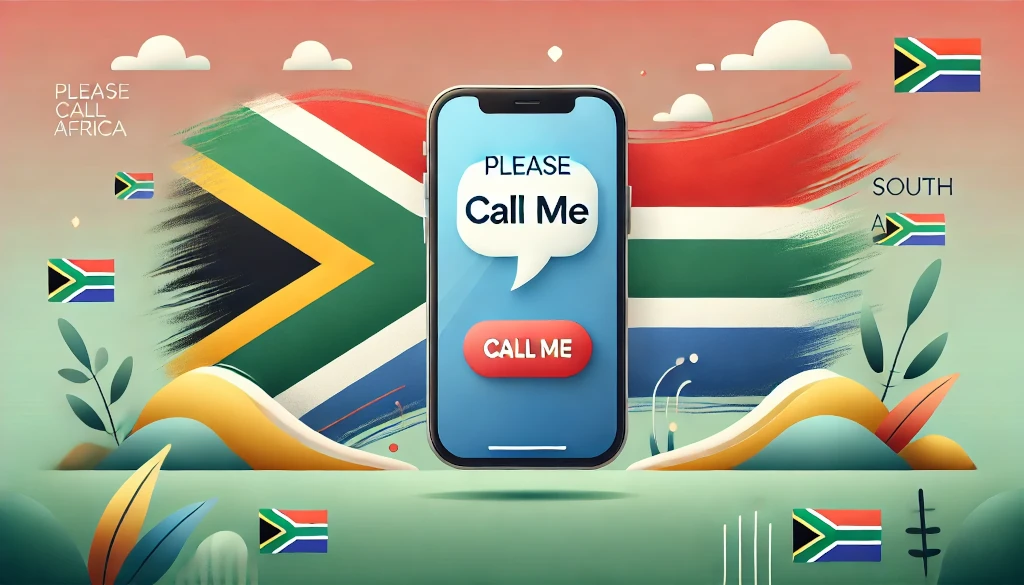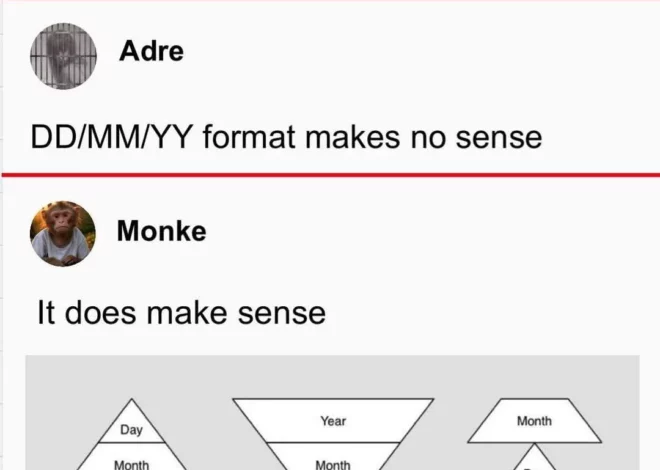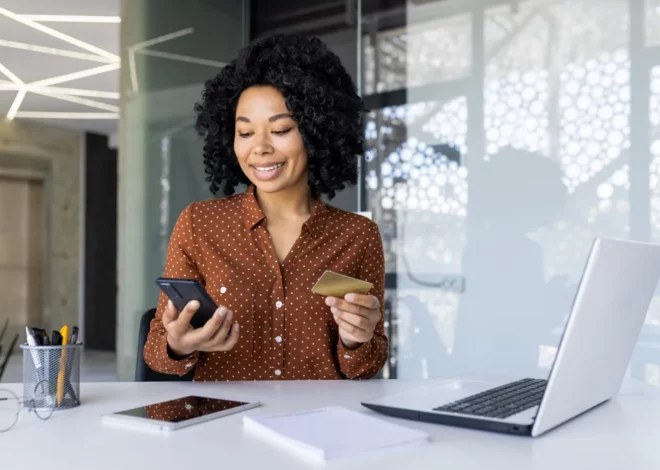
How to Send a “Please Call Me” on Vodacom
Stuck without airtime but need someone to call you urgently? Vodacom’s “Please Call Me” service is a quick and free way to let someone know you’d like them to get in touch. Whether it’s an emergency or just a busy day, this feature keeps you connected without costing a cent.
Here’s an easy-to-follow guide on how to use this lifesaving service:
How to Send a “Please Call Me” on Vodacom
- Open Your Dialer
Grab your phone and open the dial pad—no need for data or apps. - Type the USSD Code
Enter this command:*140*Recipient's Phone Number#
For example, if you want to send a request to 0821234567, type:*140*0821234567# - Press Call
Hit the call button (the green phone icon) to send the request. - Wait for Confirmation
Once you’ve sent the command, the recipient will get a message saying:“Please Call Me. This is [Your Phone Number].”
You’ll also receive a notification confirming the request.
Things to Know About Vodacom’s “Please Call Me”
- Daily Limit:
You can send up to 10 “Please Call Me” requests per day. If you hit the limit, you’ll need to wait until the next day to send more. - It’s Completely Free:
You don’t need airtime or data—this service is 100% free for Vodacom users. - Message Content:
The recipient sees a message with your phone number and the standard request text, so there’s no confusion.
Why Use the “Please Call Me” Service?
- Emergencies:
When you need help fast but can’t make a call, this service ensures someone gets the message. - No Airtime? No Problem:
Ran out of airtime? No stress. The “Please Call Me” feature keeps you connected. - Simple and Accessible:
It’s easy to use, doesn’t require apps or data, and works on any phone model.
Stay Connected Without Airtime
Vodacom’s “Please Call Me” service is a practical tool for those moments when you need to reach out but can’t place a call yourself. With just a few quick steps, you can notify anyone on Vodacom to call you back—completely free of charge. Whether it’s for emergencies, unexpected airtime shortages, or simple convenience, this service ensures you’re never left without options.
Stay connected anytime, anywhere, with Vodacom’s Please Call Me feature
The Contentious History of the “Please Call Me” Service in South Africa
The “Please Call Me” service, introduced by Vodacom in 2000, became the center of a long legal battle between Nkosana Makate and the telecom giant. Nkosana Makate joined Vodacom as an accounting trainee in the finance department, Makate claimed to have conceptualized the service after identifying a need for users to request callbacks without airtime. He alleged that Vodacom agreed to compensate him if the idea succeeded, but no payment followed.
Makate took Vodacom to court, arguing that the company had profited significantly from his idea while failing to honor their agreement. Vodacom countered, denying Makate’s ownership of the concept.
In 2016, the South African Constitutional Court ruled in Makate’s favor, recognizing him as the originator of the “Please Call Me” service. The court ordered Vodacom to negotiate fair compensation. Despite this ruling, disputes over the compensation amount continue, with Makate rejecting Vodacom’s offers as insufficient. The case remains a landmark decision in South African legal history, highlighting worker rights, intellectual property disputes, and corporate accountability. The “Please Call Me” story underscores the importance of recognizing and compensating innovation fairly.
Perspectives
Vodacom’s formal legal argument is that the “Please Call Me” service, while conceptualized by Nkosana Makate, belongs to the company because it was developed during his employment, as outlined in their submissions to the court and standard employment policies. Under standard employment agreements, including Vodacom’s own policies, innovations made by employees during their tenure are generally considered company property, unless otherwise specified in the contract. Vodacom states publicly that implementing the idea required their technical teams, infrastructure, and resources, presenting it as a collaborative effort rather than an individual achievement.
The company also highlights the distinction between employees and external contractors. Unlike independent consultants hired specifically to produce ideas, employees are compensated for their roles, which include contributing to company innovations. While Vodacom acknowledges Makate’s role in originating the concept, they maintain that intellectual property ownership remains with the company, as it was their systems and support that brought the idea to life.
Nkosana Makate’s legal case against Vodacom was based on an oral agreement made in 2000, where he claimed Vodacom promised to compensate him if his idea for the “Please Call Me” service proved successful. Makate, then a junior employee, proposed the concept to help users send free callback requests, which Vodacom implemented and profited from without compensating him. He argued that the company’s failure to honor the agreement constituted a breach, given the feature’s measurable success and widespread adoption.
Old David and Goliath
In 2016, South Africa’s Constitutional Court ruled in Makate’s favor, overturning what many saw as clear contractual terms and sparking debate about fairness and legal interpretation. What makes this case even more interesting is its David and Goliath dynamic largely perpetuated in media. The story of a junior employee taking on a corporate giant resonated with the public, amplified by very bias media coverage. Psycologically people naturally root for the underdog and this is true even in courts as judges are people too, subconscious cognitive bias in favor of fairness can play a role in a judgement. While judges are implicitly there to be impartial, the perception that Makate deserved justice may have influenced the case’s outcome.
The financial toll of this case has been enormous. Vodacom reportedly spent millions on legal fees, and Makate’s pursuit of justice required vast resources. Although Makate sought billions in compensation due to the success of the “Please Call Me” service, Vodacom’s settlement offers were far lower, leading to drawn-out negotiations. The costs, both financial and reputational, have been astronomical for both sides but this as with all high profile cases includes the costs to the taxpayer.
In my humble humble opinion, the “Please Call Me” case highlights how fairness and public perception can challenge black-and-white legal contracts. Ideas, on their own, are as useless as farts, everyone has them, but they rarely amount to anything unless instigated, acted upon and executed into fruition.
The true value lies not in simply having an idea but in developing, executing, and bringing it to life somthing Makate had zero hand in.
Innovation requires considerable effort, resources, and a plan to turn a concept into something tangible and profitable. In business, the real success comes from those who take action, not those who merely dream. While the “Please Call Me” case began with an idea, its implementation and widespread success hinged on infrastructure, execution, and collaboration is largely about that turning ideas into reality is where the money truly is.
That said the R47m offer that Vodacom CEO Shameel Joosub made to Makate in 2019 is testament enough towards the companies intention to compensate innovation from within it’s ranks. It’s about R47m more than I would have offered for the brainfart.
24 years since Makate submitted his idea to Vodacom dooers he’s still making headlines in media. And it still seems to me like the only thing he’s ever innovated is a substantial legal case to waste courts time. If only I would pay my rent with brain farts and opinions I too would be a billionaire.



